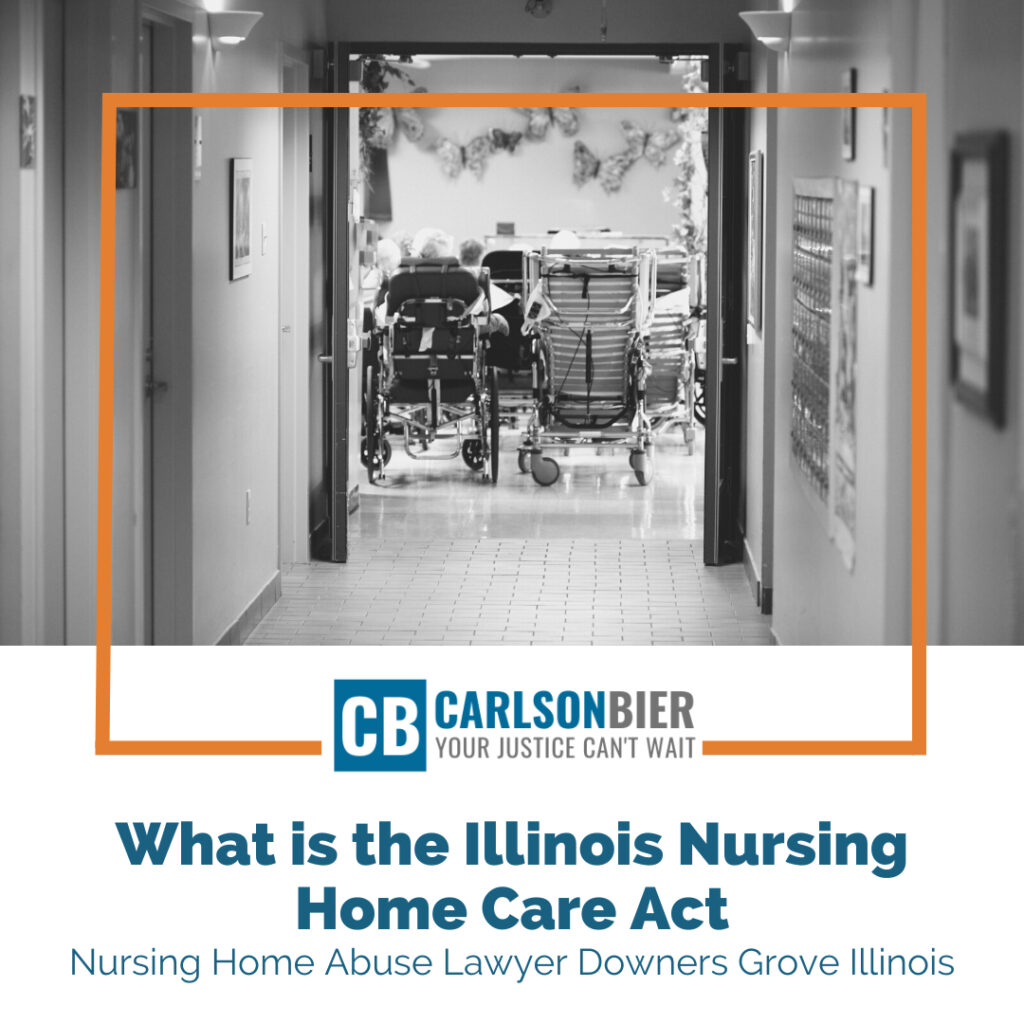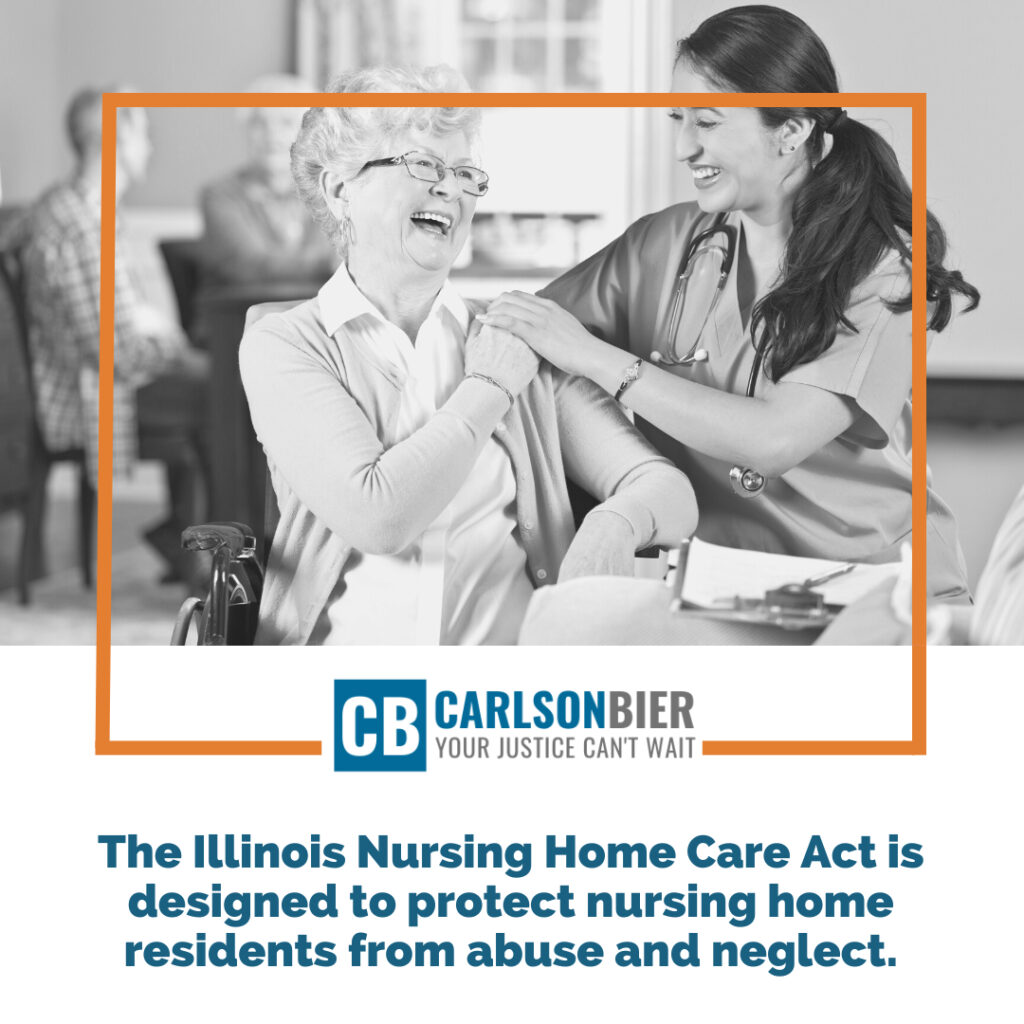The Illinois Nursing Home Care Act is designed to protect residents of long-term health care facilities in Illinois. Even with legislation in place, abuse still does happen. When it does you need a nursing home abuse lawyer Downers Grove Illinois to protect your loved one. Carlson Bier is here to help. Contact us for a consultation at 312-622-2900.
The Act requires facilities to be licensed and registered with the Department of Public Health (DPH). It also ensures residents receive quality care by regulating the staffing levels, hours of operation, and standards of cleanliness that each facility must meet.


The Illinois Nursing Home Care Act
The Illinois Nursing Home Care Act is designed to protect nursing home residents from abuse and neglect. The act was created in order to implement the federal Nursing Home Resident Protection Act of 1987, which added more protections for residents in Illinois nursing homes.
In 2009, this state law was amended again to add even more protections for residents by:
- Requiring that all facilities be licensed by at least one state agency
- Providing fines for violations
- Outlining procedures for filing complaints against facilities
- Holding hearings on these complaints
- Conducting investigations into allegations of abuse or neglect
- Reporting findings back to facility administrators within 30 days
- Taking action against those who violate their license requirements or fail to prevent mistreatment of patients
When a nursing home fails to protect their patients, there can be consequences for the facility. One way to make sure that the resident recovers any damages they deserve is to hire an experienced nursing home abuse lawyer Downers Grove Illinois. The attorneys at Carlson Bier will review your case and determine the best legal course of action to take.
More about the Illinois Nursing Home Care Act
The Nursing Home Care Act is a law that protects nursing home residents from abuse and neglect. The act was created in 1975 to protect the rights of nursing home residents, and it applies to all nursing homes in Illinois.
The Nursing Home Care Act requires each facility to have an administrator who oversees the overall operation of the facility, including compliance with state regulations. Each administrator must ensure that his or her staff members are properly trained for their jobs so they can provide quality care for residents at all times.
When quality care is not provided and a resident is a victim of abuse or neglect, they can receive compensation for damages. Contact our nursing home abuse lawyer Downers Grove Illinois to pursue your claim and to pursue justice.
Registration Requirements
With the Illinois Nursing Home Care Act a long-term health care facility (LTCF) must be licensed and registered with the Department of Public Health (DPH). This agency can make unannounced inspections of these facilities. If you suspect that your loved one has been mistreated at his or her nursing home, you may file a complaint with DPH by calling 800-252-4343. The hotline is staffed 24 hours a day. You may also submit an online form with details about the complaint.
The Illinois Nursing Home Care Act applies to all facilities regardless of their size or type. It does not apply to hospitals or assisted living facilities that don’t provide skilled nursing care.

If your loved one was not protected, contact our nursing home abuse lawyer Downers Grove Illinois
The Nursing Home Care Act is designed to protect nursing home residents from abuse and neglect. It requires nursing homes to be licensed and registered with the Department of Public Health, as well as have a license before accepting new residents. The law also requires that every facility have a written plan for providing care that meets the needs of its residents, including those who are unable to speak for themselves.
If you have questions about how this law affects your facility or family member, contact a nursing home abuse lawyer Downers Grove Illinois. At Carlson Bier, you will have attorneys who specialize in elder care and know how to best proceed with filing complaints or seeking legal remedies through court action if necessary. Contact us today for a consultation.

